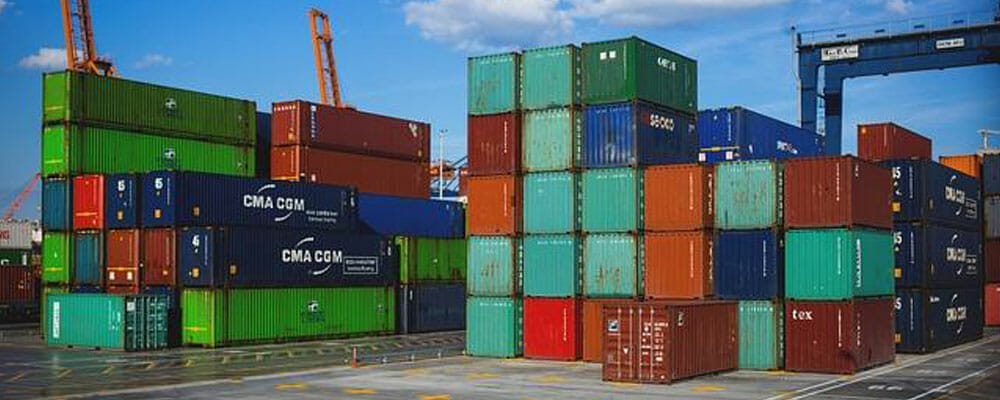Ocean freight is undoubtedly one of the most popular ways to ship goods internationally. One reason for this popularity is that sea freight is more cost-efficient, especially for bulky goods than other shipping options. Additionally, it’s safe and eco-friendly, and you can use shipping containers for road or rail transportation.
However, when shipping goods by ocean freight, you must choose between Full Container Load (FCL) and Less than Container Load (LCL). In this regard, here’s what you need to know about FCL vs LCL:
Meaning Of FCL and LCL Shipment
An FCL shipment is a cargo delivery that includes the entire container without sharing it with other shippers. Usually, FCL is used by a single consignee, and you pay for the full container so that your freight occupies the whole space. The good thing about FCL shipment is that it’s not necessary for your goods to fill the entire space, but they can be partially loaded.

On the other hand, LCL involves the shipment of goods occupying only part of the shipping container. Unlike FCL, you only pay for the space occupied by your goods and share a container with other shippers.
Difference Between FCL And LCL Shipments
LCL and FCL shipments differ in various ways. Below are some of their major differences:
Vital things to understand about LCL shipment
LCL shipping is ideal if you’re transporting smaller volumes of cargo that don’t fill a standard container space. Moreover, it’s ideal for extremely heavy, hazardous, or large loads to be forwarded as air freight.
A freight forwarder may organize for your freight to be collected, or you can transport it individually to the consolidation warehouse. If you select the last option, ensure your load arrives early enough while packaged and ready for loading.
As outlined above, you share the same container with other businesses in LCL shipping. This process of merging multiple shipments into a single LCL container is called groupage or consolidation.
Consolidation and deconsolidation
Freight forwarders, consolidators, freight agents, or logistics providers can help you with consolidation in specific warehouses. Since your shipment occupies only a portion of a container, planning teams will enhance the load arrangement of various consignments for every container. Once the container is ready, the responsible parties transport it to the port of departure, where the obligation for the cargo shifts to the shipping line.

Once the container arrives at the destination port, a freight forwarder in the destination country picks up the container and moves it to the deconsolidation warehouse. Here, the cargo is sorted out into every shipper’s load. You can pick up your cargo, or it can be delivered to your final destination, depending on your delivery order.
Crucial things to understand about FCL shipping
All the freight in an FCL container is yours in a full container load shipping option since you pay a flat fee to lease and transport the container. Before you choose FCL, here are some services for your consideration:
- Door-to-door: Your freight fee will include container transportation from the loading point to your final destination.
- Port-to-port: In this option, you need to pay for transporting your goods from the first port your container is loaded to a ship to the last port where it’s discharged.
- Port-to-door: Your payment will cover your freight transportation from the first port to your business premises.
- Door-to-port: Lastly, in the door-to-port service, you pay for the shipment of goods from the loading location to the last port where your shipment will be unloaded.
FCL shipping can be ideal if your goods occupy half of the FCL container. For economic purposes, it’s good to use this option when shipping large volumes of goods to avoid paying for unused spaces.
Benefits Of FCL and LCL Shipments
Benefits of FCL
Faster transit times
FCL shipment is known to be faster since there’s no consolidation or deconsolidation; therefore, processing freight is quicker. Thus, if time is your major concern during shipping, you may consider the FCL shipping option.
Lower risk
FCL shipments have lower risks of damage because goods are handled less frequently. Once a freight forwarder loads your cargo, the container is sealed and transported to your destination while still sealed. This lowers the possibility of goods getting damaged during transit time.
Besides that, there are lower risks of your cargo getting lost. This is because you aren’t sharing a container with other shipments.
Ideal For Bulky Freight
Undeniably, transporting bulky freight is more cost-efficient as you hire a full container. Additionally, you can use FCL shipment for awkwardly-shaped cargo that can’t share a container.
FCl is highly Flexible
FCL shipments remove the requirement of finding other suppliers with similar shipping demands as you, making the process personalized to meet your needs. Your cargo can be delivered as per your order. This way, there won’t be any delivery delays, and you can receive your cargo on time.
your cargo will arrive together

Another significant advantage of a full container load is that your shipments will be delivered in single bunches. This enables you to receive bulk goods in one trip. Additionally, it makes the transit process and unloading much simpler. Freight agents can deliver large quantities of cargo or various types of goods in a single container.
Benefits of LCL shipping

LCL shipping is essential for low-volume shipments: It’s more cost-effective to ship cargo that can’t fill a container via LCL shipment. This enables you to save on the cost of paying for unoccupied space in FCL shipping, as you only pay for the space you take up in a container
It’s easy to optimize: FCL can be difficult to optimize. This is because the volume of every container makes it challenging to modify for changes. Luckily, with FCL shipping, freight forwarders can adjust your freight to suit your shipping demands.
You can accept orders on demand: This is another significant benefit of LCL shipping if you need on-demand delivery of goods. You can ship smaller amounts of products and reserve them. This lets you save on warehousing costs.
LCL offers higher efficiency: LCL freight agencies provide agile shipping methods. This enables you to ship goods only when a client needs them. There’s no need to ship products without customers’ orders.
LCL solution is consistent: Another superior LCL advantage you can enjoy over FCL is that you can ship products whenever they’re out of stock. LCL offers consistent shipping and delivery, making the market live.
Disadvantages of LCL and FCL
Everything good also has a flip side. Here are the disadvantages of FCL and LCL shipping:
Drawbacks of LCL
There can be shipping delays: Sometimes, delivery delays can occur with LCL shipping due to missing equipment or space issues.
Cargo inspection can be troublesome: Because your freight will be transported alongside other different consignees, it can sometimes lead to problems. For instance, if one of the shipper’s cargo is illegal, there can be delays or, at worst, annulation of the shipping process.
Can be expensive: LCL shipments can be substantially costly per cubic meter.
Delicate products could be damaged: This is because of the regular moving and handling of goods.
Drawbacks of FCL
- LCL requires you to pay for the entire container, which may be expensive
- It can be unsuitable for smaller cargo
- Loading and unloading may result in extra costs
- It requires proper equipment for loading and sealing containers
How To Choose Between FCl And LCL

Various factors can influence your choice of LCL vs. FCL shipments. They include the following:
Cost: Overall cost of shipment matters when choosing between LCL and FCL. Every shipper wants the best prices with superior services. LCL costs are more budget-friendly than FCL since you share the cost with other companies.
Speed: Timely delivery is essential when shipping goods. You need to avoid delays during shipping and ensure your customers receive their luggage on the speculated time. This way, you build trust with them and boost your company’s reputation.
Therefore, FCL can be the best option for shipping urgent shipments. This is because there may be no stoppages during transit time as you hire the full container.
However, LCL transit time can be longer since it includes shipments of separate shippers who must ship their cargo to several locations. This leads to delays in shipments.
Cargo type: Your cargo type is essential when choosing between LCL vs. FCL shipments. When you’re shipping fragile goods or those that require refrigeration during the transit time, you can go for FCL shipment. This is because your cargo will be in one container, making them safer and easier to control.
Delivery appointments: Based on the delivery location of your cargo, LCL shipment can be easier to book an appointment with fulfillment warehouses than large quantities of loads. Sometimes, the wait time for a delivery appointment to ship FCL containers may take longer than LCL shipments.
Shipment volume: The size of your shipment plays a significant role when choosing between FCL vs. LCL shipping. FCL shipping is the most cost-efficient when moving more than 14 cubic meters of goods. On the other hand, LCL is essential for low-volume shipments, usually within two to 13 cubic meters.
Flexibility: Generally, LCL shipping is more flexible than FCL. For example, when shipping goods to multiple amazon FBA facilities or you need to divide your shipments across destinations, LCL is a perfect option. However, if you use FCL shipping for these options, you may need to pay additional costs for unloading, warehousing, and sorting.
Security: Another significant factor to consider when choosing between FCL vs. LCL is the safety of your goods. You need a shipping option that ensures your goods arrive securely. In this case, FCL is more secure than less than container load shipping.
This is because you own the entire container, and there’s less handling; hence there are lower risks of theft or damages.
Split shipments: If you need to deliver shipments to different locations, LCL shipments can be the ideal option because the full container goes to a warehouse for sorting. You can also split cargo for FCL shipment depending on the size of your goods.
However, remember that FCL shipment doesn’t require to be transported through a warehouse; thus, you may pay extra fees for loading, unloading, sorting, labeling, etc.
Conclusion
Choosing between FCL vs. LCL shouldn’t be nerve-racking when you know everything about each method. As outlined above, various factors can influence what you can settle on. Depending on your shipping demands, you can always find an option that meets your needs.
Remember that each choice has its own unique pros and cons. Therefore, you must consider both sides before concluding your selection. However, consider working with a freight forwarder to help you choose the best option for your cargo.
